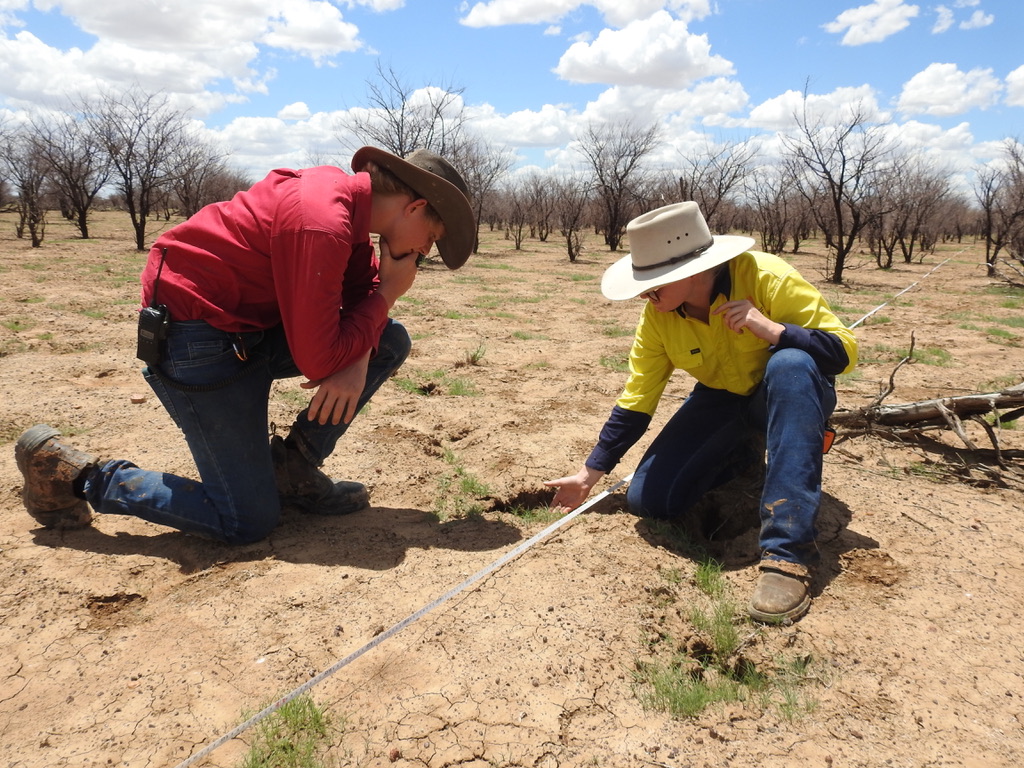New grass seeding trial to ‘fast-track’ recovery
Following recent rainfall and years of drought, fast-tracking the recovery of the rangelands has been a priority for many landholders.
The standard, time-tested solution is to have patience and wait, “because the grass will come back eventually”.
Based on monitoring from DCQ since 2013, it can take at least six years to recover highly degraded country and have the foundations for biodiversity.
This process works, it’s low cost, but for many landholders it’s simply too long to wait. As such, DCQ is working with landholders near Muttaburra to test techniques to reduce this timeframe.

A new Mitchell Grass trial
The trial area, covering nearly 200ha, already has an amazing 52 species of pasture plants, but very few are grasses and productivity is very low.
During the trial, DCQ applied coated Mitchell Grass seed (a native perennial grass from the area) at a range of different densities.
Now, with some welcome rain arriving, monitoring will greatly accelerate.
Existing juvenile tussocks have been painstakingly pegged and the recovery rate from the seeded areas.
Results will now be measured to provide landholders with information on the most effective combination of seed density rates, relative economics and complimentary grazing pressure to re-establish perennial pasture in these areas.
While full results will take two years, the first pieces of the advice will be provided at the April 2023 Field Day.
Funding for this project has been provided by the Australian Government through the National Landcare Program, the Desert Channels Queensland Foundation and contributions from landholders.

